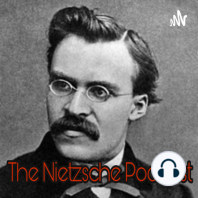1 min listen

51: Fustel de Coulanges, The Ancient City, part 2: Conflict of the Orders
51: Fustel de Coulanges, The Ancient City, part 2: Conflict of the Orders
ratings:
Length:
104 minutes
Released:
Nov 1, 2022
Format:
Podcast episode
Description
Having discussed the ancient foundations of the religion that governed the minds of the Hellenes and the Romans, we now discuss how life in the city developed. The social order and the laws governing the cities were rooted in religious beliefs that were so old that they were now already modified and subsumed within other, newer beliefs. Since the belief is the foundation of the social order, Coulanges asserts that it was the transformation of the religious beliefs that began to demand the changes which would occur in the cities. As the beliefs continued to be modified, a series of revolutions rippled through the Ancient Greek world. Centuries later, the same happened in Italy. First, the aristocracies revolted against the kings. Then, the people against the aristocracies - often installing tyrants (dictatorships which were supported by force and bribery). The struggle between oligarchies, tyrannies, and democracies then continued for hundreds of years, and the ancient writers began to see these forms of government as in a cycle of revolution against one another. However, the transformation of the social life brought with it new developments which in turn perpetuated the changes: the rise of Greek philosophy, the imperialism of the Roman empire and the spreading of its beliefs and temples to many lands and peoples, and finally the emergence of Christianity, which proclaimed the universal equality of man, one god over all the peoples of the world, and no secret or private worships. The social order could not survive this complete revaluation of values, and it disappeared in the centuries that followed.
While Coulanges and Nietzsche did not comment on one another's work at all - in spite of being contemporaries - they both shed light on the insights of the other. Here we have a historical analysis which is in line with Nietzsche's Genealogy of Morality, and his account of the Christian revolt against the pagan, Greek master morality. Coulanges, rather than present the case in terms of moral philosophy, examines the underlying religious beliefs as primary.
While Coulanges and Nietzsche did not comment on one another's work at all - in spite of being contemporaries - they both shed light on the insights of the other. Here we have a historical analysis which is in line with Nietzsche's Genealogy of Morality, and his account of the Christian revolt against the pagan, Greek master morality. Coulanges, rather than present the case in terms of moral philosophy, examines the underlying religious beliefs as primary.
Released:
Nov 1, 2022
Format:
Podcast episode
Titles in the series (100)
The Nietzsche Podcast Trailer by The Nietzsche Podcast